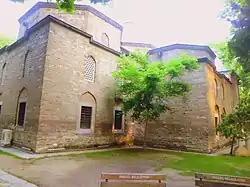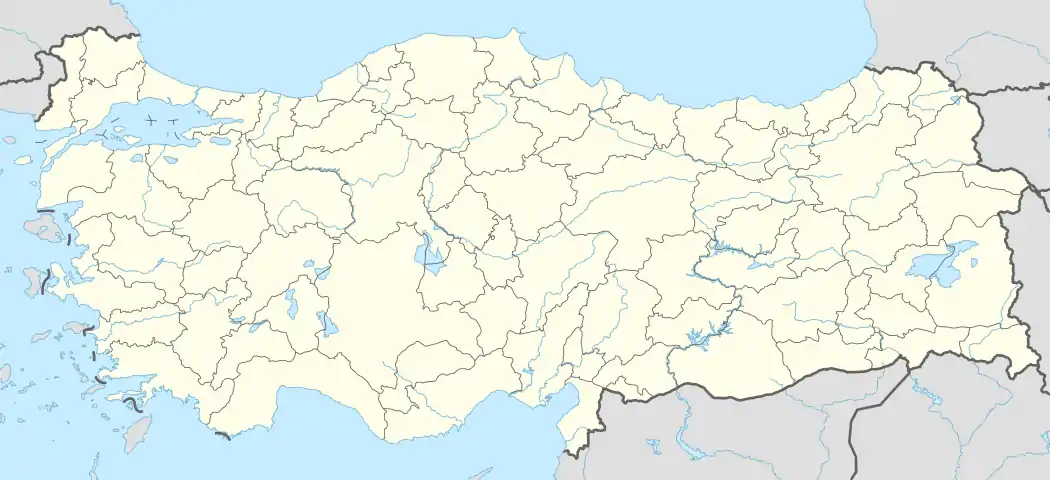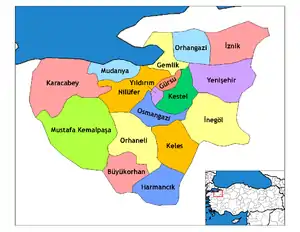İnegöl
İnegöl (known as Ἀγγελόκωμις, Angelokomis in the Byzantine period)[3][4] is a city (center of the İnegöl district) in the Bursa Province of Turkey. It has a population of 287,000 (2011 figures). İnegöl is one of the centers of the Turkish furniture industry, and is also known for its meatball (İnegöl köftesi) which has its origins in ćevapi brought to the region by Bosnian immigrants (Bosniaks) during the Balkan Wars.
İnegöl | |
|---|---|
 | |
 İnegöl | |
| Coordinates: 40°04′50″N 29°30′35″E | |
| Country | Turkey |
| Province | Bursa |
| Government | |
| • Mayor | Alper Taban (AKP) |
| • Kaymakam | Durmuş Gencer |
| Area | |
| • District | 1,031.26 km2 (398.17 sq mi) |
| Population (2012)[2] | |
| • Urban | 177,617 |
| • District | 229,812 |
| • District density | 220/km2 (580/sq mi) |
| Post code | 16700 |
| Website | www.inegol.bel.tr |
Although considerably quieter than neighbouring Bursa and Eskişehir, İnegöl retains sufficient attractions to make it interesting to tourists on a one- or two-day stopover, as well as possessing sufficiently unspoilt nearby natural attractions to keep one occupied for longer stays. Notable tourist attractions are the İnegöl Kent Müzesi[5] and (directly next to it) the Historical Mosque. Nearby to İnegöl is the health resort of Oylat (also known as the Oylat Hotspring), adjacent to the Oylat Cave. İnegöl is also conveniently located near to Uludağ, a popular skiing resort during the winter months.
Notable people
Notable residents include Mustafa Ülgen, an orthodontist. A section of the İnegöl Kent Müzesi (museum) is dedicated to him.
Twin cities
References
- "Area of regions (including lakes), km²". Regional Statistics Database. Turkish Statistical Institute. 2002. Retrieved 2013-03-05.
- "Population of province/district centers and towns/villages by districts - 2012". Address Based Population Registration System (ABPRS) Database. Turkish Statistical Institute. Retrieved 2013-02-27.
- Korobeĭnikov, Dimitri (2014). Byzantium and the Turks in the Thirteenth Century. Oxford University Press. p. 284. ISBN 978-01-98-70826-1. Retrieved 13 August 2020.
- "İnegöl Tarihçesi — İNEGÖL ADINA DAİR". inegol.bel.tr (in Turkish). Retrieved 10 August 2020.
- "ABOUT İNEGÖL". inegolkentmuzesi.gov.tr. Retrieved 10 August 2020.
